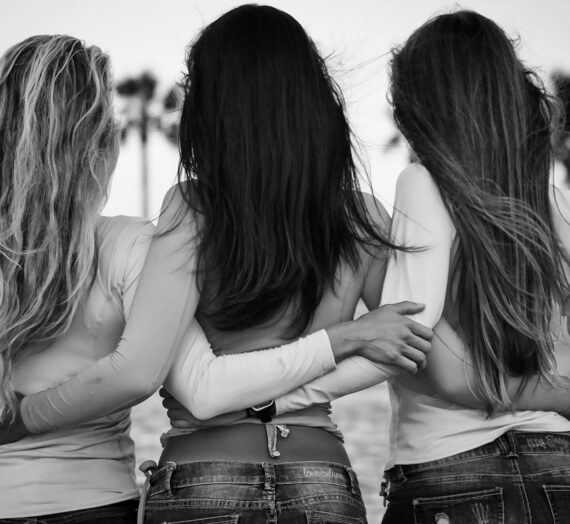THE WELLNESS REVOLUTION: BODY CULTURE
A toned body, an agile mind and tons of energy: who wouldn’t sign up for that? A state of complete contentment – ‘eudaimonia’ as the ancient Greeks called it, or ‘wellness’ as it’s been known since the 1950s – has been at the pinnacle of human aspirations for many centuries. From the early 1900s onwards, this very ambition began to spin a billion dollar industry, offering services, facilities and products to the health-conscious consumer. In this blog we revisit revolutionary 20th-century ideas to bolster physical fitness and a fit physique.
Roots
Search the internet for ‘wellness’ and 859 million sites offer to guide you to a world of bliss. Whereas the term became mainstream only in the late 20th century, the concept is as old as humanity. Thousands of years ago, Chinese traditional medicine aimed at addressing aspects of both physical and mental health. In Ancient Rome and Greece too, it was the norm for men as well as women to frequent gymnasiums and take care of their body as a prerequisite for sanity of mind.
In the Middle Ages, Sephardic Jewish philosopher Moses ben Maimon – commonly known as Maimonides – explicitly championed physical activity as a means to achieve ‘genuine wholeness’, or knowledge of God. Taking care of the body was regarded as generally beneficial, but essential to spiritual development in particular.
From the beginning of the 20th century onwards, going to the gym and engaging in indoors and outdoors activities gained momentum. This was partly due to a rise in people working in specialised professions, which allowed for more time to pursue healthy and rejuvenating activities The industrial revolution had brought about a more sedentary lifestyle and with it an increased awareness that this could have negative effects on the body.
With the emerging body culture, the focus on exercising grew stronger. As sports and leisure activities became more widely accessible, the veneration of those excelling in physical activity and demonstrating an exceptional physique boomed as well. Being muscular now equated to being beautiful, and beauty was considered healthy.
Bodybuilding competitions were organized as early as 1901: the year of the ‘Great Competition’ at London’s Royal Albert Hall. The show, in which Sir Arthur Conan Doyle sat as a member of the jury, was an immense hit, with a sold out venue and disappointed, turned-down visitors as a result. The number of bodybuilders and competitions steadily rose in the next decades but exploded in the 1950s and 1960s. Bodybuilding magazines started to appear, federations and specialized organizations were established, and food supplements aiding to achieve that perfect shape were introduced to the market.
For the less ambitious, the integration of body exercise in the office environment or a dedicated sports holiday were viable strategies to increase mobility and counter weight gain.
A new boost in the wellness industry occurred in the last quarter of the 20th century, when the baby boomer generation started to explore ways to stay active and youthful. This generated a continuous demand for new products and services: from personal trainers to superfoods and from self-massage devices to infrared sauna cabins.
Autor: Sofie Taes for KU Leuven – Photoconsortium. Źródło artykułu: Europeana Foundation. Licencja CC BY-SA 4.0.
Definicje i przykłady zdań pochodzą ze słownika Cambridge Dictionary.
VOCABULARY
toned /təʊnd/ – (of a body) firm and strong;
umięśniony, wyraźnie zarysowany (np. o mięśniach)
agile /ˈædʒ.aɪl/ – (mentally) able to think quickly and clearly;
sprawny mentalnie
contentment /kənˈtent.mənt/ – happiness and satisfaction, often because you have everything you need;
zadowolenie
pinnacle /ˈpɪn.ə.kəl/ – the most successful or admired part of a system or achievement; the most successful point;
szczyt
spin /spɪn/ – to (cause to) turn around and around, especially fast;
kręcić się (tu: o biznesie, przemyśle)
bolster /ˈbəʊl.stər/ – to support or improve something or make it stronger;
podtrzymywać, wzmacniać
bliss /blɪs/ – perfect happiness;
rozkosz, szczęście
mainstream /ˈmeɪn.striːm/ – considered normal, and having or using ideas, beliefs, etc. that are accepted by most people;
powszechnie akceptowany
prerequisite /ˌpriːˈrek.wɪ.zɪt/ – something that must exist or happen before something else can exist or happen;
warunek wstępny, zasadniczy
sanity /ˈsæn.ə.ti/ – the state of having a healthy mind and not being mentally ill;
zdrowie psychiczne
explicitly /ɪkˈsplɪs.ɪt.li/ – in a way that is clear and exact;
wyraźnie, dobitnie, jawnie
champion /ˈtʃæm.pi.ən/ – to support, defend, or fight for a person, belief, right, or principle enthusiastically;
orędować, opowiadać się za czymś
means /miːnz/ – a method or way of doing something;
sposób, środek
momentum /məˈmen.təm/; /məʊˈmentəm/- the force that keeps an object moving or keeps an event developing after it has started;
rozpęd, impet
pursue /pəˈsjuː/ – if you pursue a plan, activity, or situation, you try to do it or achieve it, usually over a long period of time;
dążyć do, realizować
rejuvenating /rɪˈdʒuː.vən.eɪtɪŋ/ – making someone look or feel young and energetic again;
odmłodniający, ożywiający (o duchu)
sedentary /ˈsed.ən.tər.i/ – involving little exercise or physical activity;
siedzący (o trybie życia)
veneration /ˌven.ərˈeɪ.ʃən/ – the feeling or act of venerating (= very much respecting) someone or something;
cześć, szacunek
physique /fɪˈziːk/ – the shape and size of a human body;
budowa ciała
boom /buːm/ – to increase or become successful and produce a lot of money very quickly;
doprowadzić do wzrostu
equate /ɪˈkweɪt/ – to consider one thing to be the same as or equal to another thing;
utożsamiać, przyrównywać
immense /ɪˈmens/ – extremely large in size or degree;
ogromny, niezmierny
turn down /tɜrn daʊn/ – to refuse to accept or agree to something, or to refuse someone’s request;
odrzucać, odmawiać
viable /ˈvaɪ.ə.bəl/ – able to work as intended or able to succeed;
wykonalny, opłacalny
infrared /ˌɪn.frəˈred/ – infrared light is a type of light that feels warm but cannot be seen;
promieniowanie podczerwone




